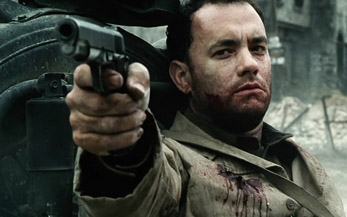|
|
Highlights: Tom HanksBy Jason BarneyJuly 11, 2012
4) Philadelphia (1993) There are few roles in the lifetime of an actor that transform careers. Prior to this Hanks had delivered his staple cute comedies. Big and Sleepless in Seattle were great for him, but he also was in the phase of Joe Versus the Volcano and The Burbs. When Philadelphia came out in 1993 it transformed his career. Much of what Tom Hanks will be remembered for will be because of Philadelphia. It was as unlikely a transformation for him as Philadelphia was to be a widely successful picture. His work, and the heartfelt tale of a man who grapples with discrimination because of his homosexuality and exposure to the AIDS virus, come together for one of the actor’s very best performances. Audiences fell in love it despite being about a topic most people didn’t want to acknowledge in a time when homosexuality was viewed much differently. In a surprising display of viewer approval, Philadelphia cost $24 million to make, but brought in three times its budget just in within the United States. When worldwide grosses were tabulated, it had collected well over $200 million. Hanks plays Andrew Beckett, a competent and successful lawyer with very good career at a Philadelphia law firm. As the film progresses, we see him as a normal employee, driven and good at his job. The director gives close-ups of Beckett’s face, and we see the AIDS related legions on his skin. He has made the decision to keep his situation private, not making his law firm aware of his lifestyle or disease. When they find out, he is terminated in a very backhanded way. From this point on, Beckett relies on a rival lawyer, Joe Miller (Denzel Washington) to bring his case to court. His partner, Miguel Alvarez, (Antonio Banderas) comes across as loving, devoted, and no different than any family member or partner. The deterioration of Beckett during the case is real and sad, and Washington’s character is a great prism by which viewers must question their own prejudices. His associations with Beckett, which challenge his preconceived notions about homosexuality and AIDS, are very pleasant to watch. Of particular note is a scene at Beckett’s house, where he reveals his love of opera, and Miller realizes the humanity of the man.
|

|
|
|

|
Friday, November 1, 2024
© 2024 Box Office Prophets, a division of One Of Us, Inc.


